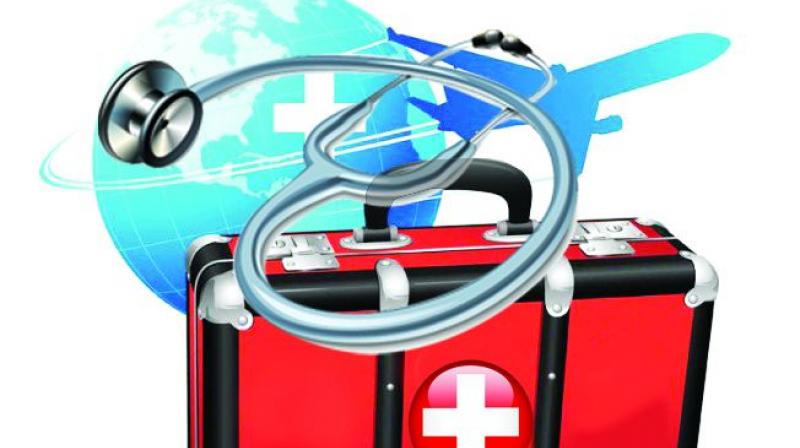US warnings to hit India's medical tourism hard
The slowdown in the sector will affect hospital fortunes.

Hyderabad: India’s $3 billion medical tourism market may suffer a setback due to the emergence Carbapenem-resistant enterobacteria infections in medical tourists from the USA. Disparaging remarks made by the Director of the National Institute of Allergy and Infectious Diseases of USA are expected to have a negative impact on the industry.
Dr Jai Krishna, the head of the department of Critical Care at Apollo Hospitals, says that such infections do not arise in accredited, tertiary-care hospitals. “Enterobacteria is a group of gram-negative bacteria that is identified as an “escape pathogen” with a high rate of antibiotic resistance. It is this group of bacteria that is responsible for a majority of nosocomial infections. But all the tertiary-care hospitals that receive medical tourists maintain hygiene and sterilisation standards; they have protocols in place to prevent nosocomial infections.”
According to a report released by the Indian Ministry of Commerce in October 2017, the Indian medical tourism market is expected to grow to $9 million by the year 2020.
“There has been a slowdown, instead of the boom predicted. Medical tourists first go to low-cost hospitals and only shift to more high-end healthcare facilities if they face problems, and this is a problem.
“When patients hop from one hospital to another, they carry with them infections. We have been asking the government to identify a set of hospital authorised to treat medical tourists. The system must be streamlined to avoid such remarks being made by other countries,” says Dr Bhaskar Rao, the managing director of KIMS Hospital.
Infection control is a major cause of concern as protocols are not standardised across the country. Hospitals accredited by the National Accreditation Board for Hospitals (NABH) are required to maintain certain standards and follow a set of protocols. But little to no checking is done at other hospitals.
Antibiotic resistance is a common problem among Indian patients because they are prescribed antibiotics even for minor ailments. The grade I and grade II antibiotics administered at hospitals in the USA are found to be ineffective against antibiotic-resistant bugs from India.
Mahender Pala, who is studying Hospital Management in India at the Harvard Business School, says, “The excessive use of antibiotics in India is leading to a powerful never-before-seen mutation within bacteria. Patients with these resistant bacteria have been encountered in hospitals in USA, UK, Canada, Japan and China. Local transmission of the bacteria is a major cause of concern.”

